Haryana and UP Face Delays in Solar Net Metering Approvals
Haryana and UP Face Delays in Solar Net Metering Approvals
In National Capital Region, the net metering has been allowed by all three state governments of Delhi, Haryana and Uttar Pradesh. It means that if a building owner has installed the roof top solar solution, then the units (kWh) generated from this solar solution will be netted off from the total monthly electricity bill of the building. It is an important step in promoting roof top solar as the generation from solar is available during certain hours in a day when the building may not require this electricity. As such the building owners can “bank” this power with the Distribution grid and take it back when they require it through net metering mechanism.
In India, most states have notified the policies for the implementation of the net metering facility to promote rooftop solar. However, most of the distribution companies (Discoms) have remained reluctant to enforce this policy and provide the net metering to the roof top owners. In fact, progressive states like Gujarat that have led the solar installation in the country have not been able to promote the net metering in the state.
The obvious risk the state Discoms perceive is in losing out the high paying customers to roof top solar solutions. Many state Discoms have been able to contain the large industrial and commercial customers from buying power from third party/Exchange through open access route by denying access to their networks and imposing high cross subsidy surcharge. However, the roof top solar does not require Discom’s network to be used for the end customers to generate and use own electricity. Therefore these solar solutions become a major threat to Discoms’s business going forward. Expectedly the Discoms are trying to find reasons for not providing net metering and slowing down the pace of roof top solar installations.
Solar Net Metering Approvals
However certain Discoms are also endeavouring to put processes in place for the approval of net metering applications. Such solar systems would require special meters that can read bidirectional flow of power. Discom’s officials have been reviewing the new processes required for smooth transitioning. Delhi Discoms have done relatively well to get started with the net metering with the roof top solar solutions. Many applications have been approved by them and building owners are able to successfully install solar at roofs. In fact, we know the cases where BSES discoms have provided NOC (no objection certificate) for the net metering within two weeks. The process has been well streamlined and simple application forms for net metering are widely available.
Solar Net Metering Approvals in Haryana
On the other hand, Discoms in Haryana and UP are still struggling with the net metering process. In Haryana, Discoms are not accepting application for the net metering. Even if the officials accept the application, they will not accept the mandatory fee of Rs 1000 which binds them to provide/reject the net metering application within next few weeks. In Gurgaon itself, more than 5 applications have been filed with the concerned officials. We have been told that the Discom will soon start issuing the NOCs for net metering.
Solar Net Metering Approvals in UP
In UP, one net metering application for roof top solar has been approved till date in Kanpur. Otherwise the situation is not much different from that in Haryana. It remains a struggle to get a net metering for roof top solar.
Suggested Articles
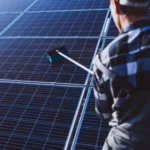
Solar O&M Services: How to Ensure Peak Performance & Maximum Power for Solar System
Discover how Solar O&M services keep your solar system running at its best. From routine maintenance to performance monitoring, ensure maximum power and efficiency.
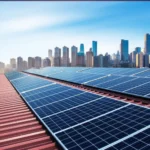
India and Japan Strengthen Renewable Energy Cooperation
India and Japan have initiated a partnership under the Asia Energy Transition Initiative (AETI) to support India’s clean energy transition. India has set an ambitious target of achieving net-zero by 2070, while Japan aims to achieve the same by 2050.
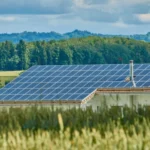
CAPEX or OPEX? How to Choose the Best Solar Ownership Model
Choosing between the CAPEX and OPEX models can greatly impact your solar savings and ownership benefits. This guide explains both models to help you make the right decision.

Haryana Electricity Tariff Hike Impacts All Consumer Categories in 2015-16
Haryana electricity tariffs were increased across all consumer categories in 2015-16, raising power costs for households, industries, and businesses statewide.
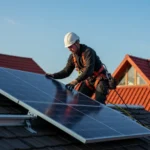
Rajasthan Rooftop Solar Subsidy: What Homeowners Need to Know
Rajasthan homeowners can save big with the 2025 rooftop solar subsidy. Learn about the updated rates, eligibility criteria, and benefits to make your switch to solar more affordable.

Solar Energy for Petrol Pumps: Benefits, Savings, and Implementation
Petrol pumps can significantly reduce energy costs and carbon footprint by adopting solar power. This guide explains the benefits, types of solar installations, and how fuel stations can leverage renewable energy for sustainable and efficient operations.
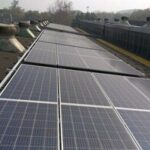
How to Improve Solar Panel Performance for Optimal Energy Output
Performance degradation in solar panels reduces energy output over time. This guide explains how to factor in degradation when calculating annual yields, ensuring accurate estimates for residential, commercial, and industrial solar installations.

PM Surya Ghar Muft Bijli Yojana 2025: Online Registration Made Simple
PM Surya Ghar Muft Bijli Yojana 2025: Learn how to register online and get free electricity under this government scheme.
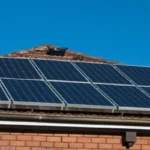
Solar Panel Efficiency and Temperature: What You Need to Know
The stronger the sun, the higher the temperature and more energy your solar panels produce, right? No.
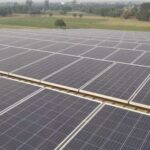
Group Net Metering for Solar Projects: A Smart Way to Maximize Solar Energy Generation
Discover how group net metering allows multiple participants to share solar energy from a single project, reduce electricity bills, and enhance solar efficiency.